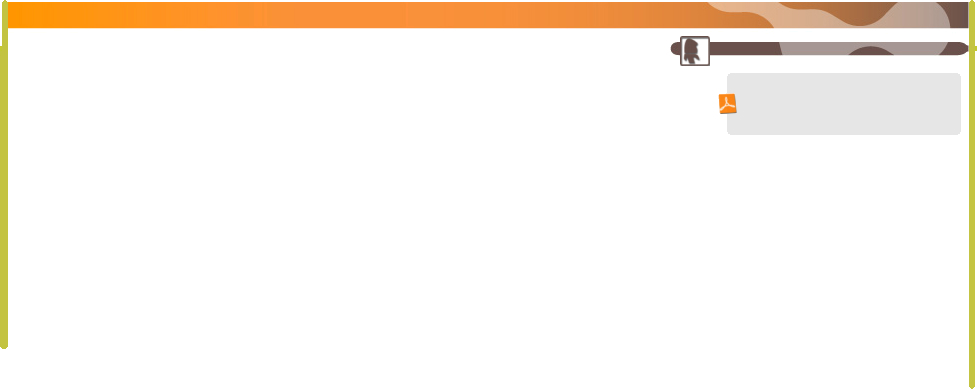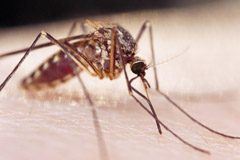M













France has set up an expert institution to specialise in the different aspects of vector control, the National Centre of Expertise on Vectors (CNEV). It has been set up for a period of five years as a multidisciplinary organisation capable of rapidly and effectively mobilising all French expertise and know-how in the fields of medical and veterinary entomology, vector control and the human and social sciences as applied to public health, with a view to assisting the authorities in their decision-making. The creation of such a centre of expertise was one of the principal recommendations of the collective expert appraisal “Vector control in France”, whose conclusions were published in 2009. The CNEV includes many of the leading French research bodies and operational and monitoring institutions involved in disease vector control.
The CNEV is a Network of Laboratories and Scientific Partners, coordinated by a Central Laboratory. Each player in the CNEV network has its own field of competence and well-defined attributions, such as expert appraisal, scientific and technical support, surveillance, recommendations for research and assistance with training.
General architecture
The CNEV will have the following architecture: a coordinating Central Laboratory, three Associate Laboratories, and 35 specialist partners, as shown in the following diagram:
The CNEV will have the following missions:
Entomological expertise
- Participation in the development, monitoring and evaluation of good practices and recommendations concerning techniques for entomological surveillance and vector control,
- Definition and evaluation of indicators for entomological surveillance,
- Definition and evaluation of indicators for the efficacy of vector control,
- Maintenance, archiving and dissemination of techniques for diagnosis and/or identification and characterisation,
- Identification and characterisation of blood-sucking arthropods submitted by the French State's operational services,
- Evaluation of the sensitivity and resistance to insecticides of vector insects where necessary.
Scientific and technical support
- Scientific and technical support to the ministries concerned,
- Participation in drawing up vector-control measures,
- Contribution to support missions as requested by the ministries concerned,
- Support on vector topics to health agencies responsible for surveillance and the assessment of health risks,
- Representing the ministries concerned at European and international level for expertise in medical and veterinary entomological issues,
- Participation in audits of vector control measures, as required.
Support for technical operations
- Technical organisation of the network of vector control services; scientific and technical support for vector control services,
- Transfer of technical know-how to operational services responsible for vector control.
Support with training in the field of vector control
- Contribution to policy decisions for training on vector control, vectors and vector risk.
Maintaining a scientific and technical watch
- Scientific watch and issuing warnings, on entomological aspects, vector risks and emerging entomological phenomena,
- Monitoring developments in scientific and technical knowledge and transfer of information to the operational field,
- Publishing a regular newsletter on scientific and technical watch issues, and setting up a website (www.cnev.fr).
Research
- Identification and specification of research priorities within its field of competence, based on the needs of the ministries of Health and Agriculture and the corresponding scientific challenges,
- As necessary, support for planning and resources agencies in identifying priorities for calls for projects.
Description of CNEV
Central coordinating laboratory: the MIVEGEC research unit (IRD, CNRS, Universities of Montpellier), focused on vectors of human diseases and resistance to insecticides. The coordinating laboratory hosts the team of engineers who work exclusively for the CNEV.
Three Associate laboratories
- the CMAEE research unit (CIRAD-INRA), with particular competence regarding vectors of animal diseases.
- the Interdepartmental Alliance for Mosquito Control on the Mediterranean Coast (EID-Méditerranée), for the operational aspects of surveillance and vector control.
- French School of Public Health (EHESP) for aspects concerning the human and social sciences.
Partners
Partners have been chosen in their personal capacities (intuitu personae) for their acknowledged competence, especially in highly specialised aspects of entomology, their knowledge of specific regions of France and of particular areas of the human and social sciences. They number 140 scientists specialised in different fields of medical and veterinary entomology and have been selected from 35 teams from a variety of organisations.
Lab news
France sets up a National Centre of Expertise on Vectors of human and animal diseases: the CNEV
Paul Martin (1), Didier Fontenille (2)
(1) ANSES Lyon Laboratory, 31, Avenue Tony Garnier, F-69364 Lyon Cedex 7
(2) UMR MIVEGEC, Centre IRD, 911, Avenue Agropolis - BP 64501, F-34394 Montpellier Cedex 5
Chikungunya, dengue fever, bluetongue, West Nile fever, malaria, Lyme disease, Chagas disease and more. A particular feature of these diseases in France (and also in France's overseas territories) is that they are transmitted by insects or ticks. These infectious diseases are a matter of major concern in human and veterinary health. Planetary changes (to the climate, the environment and society) also generate new health risks. Combating or providing protection against these vectors are key strategies in efforts to control these infectious diseases.
Organisation of the CNEV





